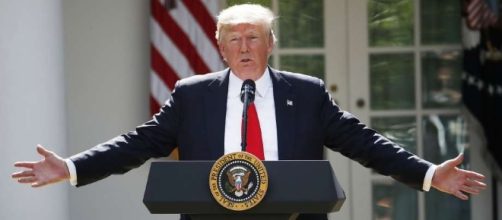The trump administration is up in arms over the Supreme Court. Trump's executive order, shot down last week, is now in the hands of the federal courts. A travel ban may come sooner then expected.
Is President Trump's travel ban lawful?
Federal courts are continuing to examine whether the Trump administration’s travel ban is lawful. The Trump administration is eager to put the travel ban into effect, so it’s probing the Supreme Court for approval to start implementing it sooner rather than later. With that said, the Supreme Court could decide whether they will lift the temporary stay on Trump's executive order prohibiting travel from several predominantly Muslim countries within days.
The travel ban has become a significant test of Trump's presidential power. The primary dispute is if the ban breaches the clause of the 5th and 14th Amendments, the Religion Articles of the 1st Amendment, and the injunction on nationality discrimination in the issuance of refugee visas comprised in the 65-year-old congressional law.
What comes next?
Thursday night, the DOJ filed an entreat for the Supreme Court to override a 4th Circuit judgment from last week that retained a hold on the Trump administration’s proposition to provisionally ban individuals from six primarily Muslim countries from coming into the United States. They were also requesting that the federal policy be implemented while the larger concerns are arraigned.
Whether the Supreme Court rules in favor of the Trump administration’s desires depends on whether the Court’s conservative annex accedes the government’s reason that the executive branch’s power on migration and national security is complete and imperative enough, that the lower-court pronouncements against the organization are a horrendous fault -- worth omitting a few bureaucratic ladders to repair.
Last month in Virginia a federal pleas court directed against EO13769, "Guarding the Nation from External Terrorist Entry into the United States." Most of the 4th Circuit petitions court parroted then-candidate Trump's movement declarations insinuating a ban "deterring Muslim immigration."
The administration stated that the verdict was inconsistent on numerous legal facades, and proclaimed the president's prodigious authority throughout migration matters.
However, factions challenging the ban asserted that the Supreme Court would ultimately side with them and inferior courts would slow down the order.
Why the rush?
There was no agenda in terms of how swiftly the Supreme Court would issue a verdict in the case. Impartialities will be traversing how much prudence the president has over immigration. Courts have been deferential in this capacity, and modern presidents such as Obama, Reagan and Carter have used it to reject entry from certain immigrants and envoys, including from nation-states such as Cuba, Iraq, and North Korea.


